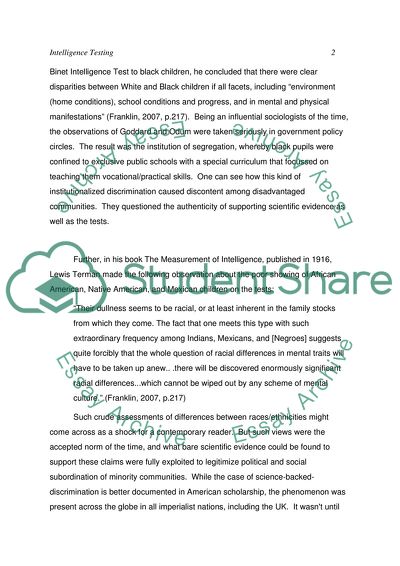Cite this document
(Issues and Controversies in Psychology Essay Example | Topics and Well Written Essays - 1250 words, n.d.)
Issues and Controversies in Psychology Essay Example | Topics and Well Written Essays - 1250 words. https://studentshare.org/psychology/1747598-why-is-intelligence-testing-a-questionable-practice-discuss-the-implications-for-widespread-testing
Issues and Controversies in Psychology Essay Example | Topics and Well Written Essays - 1250 words. https://studentshare.org/psychology/1747598-why-is-intelligence-testing-a-questionable-practice-discuss-the-implications-for-widespread-testing
(Issues and Controversies in Psychology Essay Example | Topics and Well Written Essays - 1250 Words)
Issues and Controversies in Psychology Essay Example | Topics and Well Written Essays - 1250 Words. https://studentshare.org/psychology/1747598-why-is-intelligence-testing-a-questionable-practice-discuss-the-implications-for-widespread-testing.
Issues and Controversies in Psychology Essay Example | Topics and Well Written Essays - 1250 Words. https://studentshare.org/psychology/1747598-why-is-intelligence-testing-a-questionable-practice-discuss-the-implications-for-widespread-testing.
“Issues and Controversies in Psychology Essay Example | Topics and Well Written Essays - 1250 Words”. https://studentshare.org/psychology/1747598-why-is-intelligence-testing-a-questionable-practice-discuss-the-implications-for-widespread-testing.


